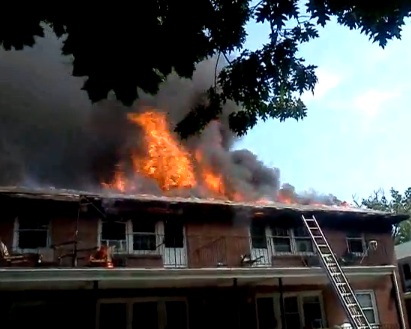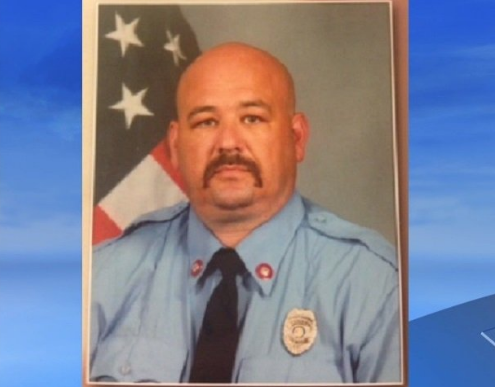Report cites 911 center, new technology & fire lieutenant for DC delay in helping choking child
As you read and watch this story, you should understand that the previous administration of Mayor Vincent Gray, Deputy Mayor Paul Quander and 911 director Jennifer Greene rushed into place new technology in the waning days of their time in office (Greene lasted four months into the new administration). Despite protests they weren’t ready to be put on the street, all DC Fire and EMS Department apparatus received new and very unreliable tablets courtesy of Jennifer Greene. When working properly, the tablets are supposed to allow the computer aided dispatch system to send the closest apparatus on all calls based on the actual location of the fire truck or ambulance.
As was often the case, this system failed on March 13 and did not show Engine 20 and Ambulance 20 available at the firehouse just three blocks away from a choking child. Instead, Engine 31 from about a mile away was sent.
DC News FOX 5 DC WTTG Click here if the video above fails to play I don’t have DC’s 47-page investigative report looking into this delayed response, but I do have some questions based on the summary of the report we are getting from Paul Wagner, an excellent reporter. According to Wagner, the report says not only did the equipment fail, but so did the 911 center by taking four-minutes to process the call. Lengthy call handling times are a chronic problem at DC’s Office of Unified Communications and one reason Jennifer Greene is no longer in charge at OUC.
Click here if video above fails to play
But the report also blames a lieutenant at Engine 20 who heard the call but didn’t notify dispatch they were closer. This brings me to the part I don’t understand. How does that lieutenant know, with any certainty his engine is closer? Couldn’t Engine 31 be passing near that location and were sent as the closest unit? If every time a supposedly closer unit was dispatched into the first-due area of another firehouse and an officer contacted the 911 center, wouldn’t that defeat the purpose of this type of dispatch system and put more strain on those working at 911?
Two of the three major problems with this call seem to be certainties: The technology failed and 911 took four minutes to process a child choking call. The third element, the lieutenant’s role, appears to be more of a judgement call.
Yes it’s possible, the details of the report indicate poor judgement. In fact, according to reporter Mark Segraves at WRC-TV/NBC 4, the lieutenant has been placed on charges to include neglect of duty, incompetence and failure to provide assistance to the public.
I’d hate the placing of the blame on the lieutenant to take away from fixing the problems at OUC, where the average call handling time is close to twice the 911 center’s own standard. That problem has been in place for a very long time and causes more delay on more emergency calls each and every day than one fire lieutenant did on March 13.
A new report obtained first by FOX 5 blames a delayed response by D.C. Fire and EMS to a choking toddler on both technical errors and human mistakes.
The 18-month-old boy went into cardiac arrest and later died after waiting more than eleven minutes for help to arrive.
As FOX 5 first reported back in March, help was in a Tenleytown fire station just three blocks away, but was never put on the call. Now, this new report is explaining why.
The exhaustive 47-page report was compiled over several weeks and lays the blame on unreliable tablet computers, 911 dispatchers and a fire lieutenant who knew the child was in trouble, but failed to act.
Early on a Friday morning last March 13th at a home on Warren Street in Northwest D.C., 18-month-old Martin Cuesta began choking on some grapes. At 8:36 a.m., a call was placed to 911.
According to this report, four minutes went by before dispatchers at the 911 center dispatched help to the house.
But instead of sending Engine 20 and Ambulance 20 parked inside a fire station three blocks away, help was sent from Engine Company 31 more than a mile away.
According to the report, 911 dispatchers didn’t know, but should have known that two units had vanished from the computer-aided dispatch.
Why did they vanish? The report says tablets became disconnected and were not signaling their location to the 911 center.
The report says it is a problem that was common knowledge among the firefighters working at the station.
Part of the blame for the delayed response, which was just three blocks up on Warren Street, is being leveled at the lieutenant who was in charge of Engine 20 at the Tenleytown station that day.
The lieutenant acknowledges that he knew the call went out for a choking child, yet he didn’t respond because their engine wasn’t dispatched. He also told the investigators that he could have picked up the phone, called the 911 center and put Engine 20 on the call, but he did not.
According to the report, when Lt. Guy Valentine was asked if he had a responsibility to take the call and possibly save the life of an 18-month-old child, he said, “Not if I’m not dispatched.”
The report goes on to say, “Lieutenant Valentine, by his own admission, did not know the address of 4246 Warren St. NW was three blocks away from his firehouse.”
The report also stated, “Lieutenant Valentine … knew there were problems with the tablet system that could have caused his unit not to be dispatched.”
“Overall, December of 2014, and you even reported on it, we were voicing our concerns and we were voicing them very loudly about the rollout of new technology from the 911 center,” said Ed Smith, president of the D.C. Firefighters Union. “I’m of the opinion it starts and stops with that crappy rollout of that technology.”
What does Smith think about Lt. Valentine?
“We have had other instances where officers have been disciplined for responding undispatched,” he said. “Now you can pick up the phone and ask for permission, but again, going back to the 911 center, if the system is working and is working correctly, an officer can safely assume the system is selecting the closest available unit to respond.”
According to the report’s timeline, it took eleven minutes for help to arrive.
In April, we talked to the toddler’s father.
“What do you think the feelings can be for a father or for a mother who loves her son like that?” Jose Cuesta told us then. “I have already stated there is sorrow. We are also angry. We are disappointed.”
We tried to reach Lt. Valentine through the union and by email, but were unsuccessful.
The Cuesta family has not yet seen the report.







